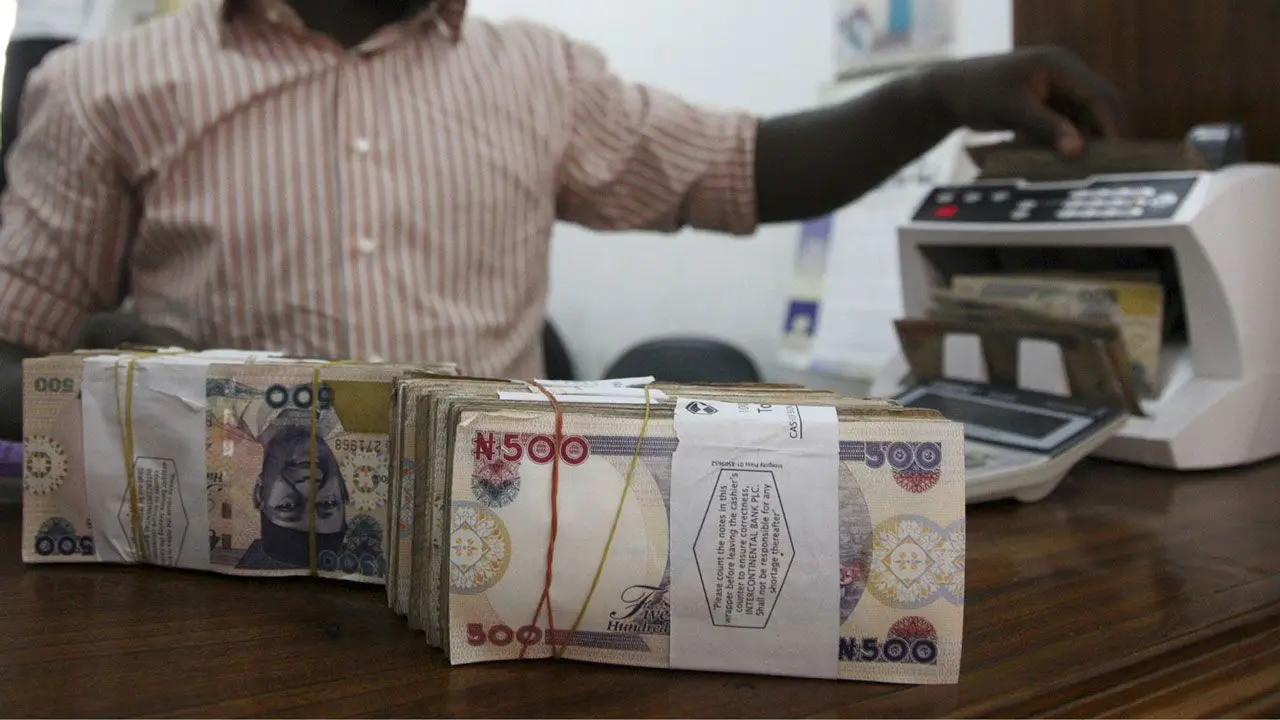Recent developments in the financial sector reveal a deepening crisis as the scarcity of Naira notes persists, leading banks to ration cash across counter transactions.
Despite the Central Bank of Nigeria’s (CBN) efforts to alleviate the situation by temporarily suspending charges for cash withdrawals above regulatory limits, the shortage of currency notes nationwide continues to intensify, even post-Yuletide season.
Financial Vanguard’s investigation uncovered that banks nationwide are restricting both over-the-counter withdrawals and Automated Teller Machine (ATM) transactions.
Concurrently, Point of Sale (PoS) operators have exploited the situation by increasing transaction fees by no less than 100%.
While the CBN had recently suspended charges for cash withdrawals above regulatory limits, the practical application falls short, with banks setting withdrawal limits considerably below the stipulated caps for both individuals and corporate account holders.
The apex bank emphasized the suspension of charges until April 30, 2024, and warned of sanctions against banks and PoS operators contributing to the Naira notes scarcity.
Reports indicate that the scarcity persists despite the CBN’s call for the public to report any infractions, such as hoarding of Naira notes by banks and PoS operators.
Checks by Financial Vanguard revealed that limits for over-the-counter withdrawals in commercial banks range from N10,000 to N40,000, well below the statutory limits.
In Abuja and Lagos, long queues formed outside banks, with customers frustrated by limited access to cash.
The situation varied across different banks and locations, with some ATMs completely devoid of cash. Customers faced withdrawal limits ranging from N5,000 to N40,000, depending on the bank and location.
Banks, grappling with the scarcity, have resorted to rationing due to insufficient cash supply.
The scarcity’s impact extends beyond frustrated customers to potential economic sabotage, with elements in the cash distribution chain taking advantage to sell Naira notes at premiums ranging from 10% to 20%.
The scarcity has prompted calls for regulatory intervention to curb exploitative practices by PoS operators, who have hiked transaction fees significantly.
Some customers lamented the difficulty in obtaining sufficient cash for their needs, leading to disruptions in business transactions and the informal sector.
Economic experts weigh in on the situation, with Muda Yusuf describing the scarcity as deliberate economic sabotage.
He urged the CBN and security agencies to investigate and curb racketeering in the banking system.
Meanwhile, Clifford Egbomeade highlighted the need for strict regulatory measures to prevent exploitation by PoS operators and alleviate financial burdens on Nigerians.
As the informal sector bears the brunt of the scarcity, analysts like David Adonri call for urgent intervention by the CBN to address the root cause and adequately supply smaller denominations.
The prevailing situation underscores the necessity for both short-term interventions and long-term strategies to ensure financial stability and mitigate the impact of Naira notes scarcity on the Nigerian population.


